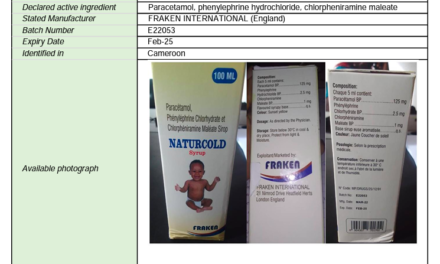Air pollution is emerging as a significant and often overlooked threat to cardiovascular health, with global experts raising alarms about its dangerous impact. Pollutants such as fine particulate matter (PM2.5), nitrogen dioxide (NO2), and other harmful gases have been linked to a variety of heart conditions, including heart attacks, strokes, and chronic heart disease. Prolonged exposure to these pollutants can lead to systemic inflammation, oxidative stress, and vascular damage, which significantly compromises heart health.
Expert Opinions on the Dangerous Link Between Air Pollution and Heart Disease
Dr. Lal Daga, senior consultant interventional cardiologist at Apollo Hospital in Ahmedabad, highlighted the rising number of heart disease cases attributed to air pollution. He noted that fine particulate matter and nitrogen dioxide can trigger systemic inflammation and blood clot formation. “To minimize exposure, individuals should use air purifiers at home, wear masks in high-pollution areas, and avoid outdoor activities during peak pollution hours,” Dr. Daga advised. He also emphasized the need for green policies and reducing vehicular emissions to address this issue on a larger scale.
Dr. Ravikant Patil, an interventional cardiologist, pointed out the increasing risk of cardiovascular diseases due to harmful pollutants like PM2.5. These pollutants can penetrate deep into the bloodstream and trigger plaque formation, leading to arterial hardening. “We need stricter emission controls and cleaner energy alternatives to mitigate the effects of air pollution,” he urged.
Dr. S. S. Murthy, director and head of cardiology at Ayushman Hospital, New Delhi, explained how air pollution can reduce blood flow to vital organs, including the heart. He noted that long-term exposure to pollutants like PM2.5 and NO2 can lead to atherosclerosis, a condition where plaques form in blood vessels, ultimately leading to heart attacks, strokes, and heart failure.
Prof. (Dr.) M. Wali, senior cardiologist at Sir Ganga Ram Hospital, New Delhi, highlighted that low- and middle-income countries bear a disproportionate burden of cardiovascular disease, with air pollution being a significant contributing factor. He stressed the importance of considering air quality when assessing cardiovascular risks and improving air quality standards.
Air Pollution’s Impact on Vulnerable Populations
Dr. Abhinit Gupta, senior consultant interventional cardiologist at Regency Health, Kanpur, pointed out that air pollution exacerbates existing cardiovascular conditions such as atherosclerosis, coronary artery disease, and heart failure. He emphasized the importance of reducing exposure to air pollutants, especially in urban areas, to mitigate these risks.
Dr. Bipin Chandra Aditya Dasari, interventional cardiologist at Rhythm Heart Institute, Vadodara, described the invisible but significant threat posed by pollutants like PM2.5 and nitrogen dioxide. These pollutants cause inflammation in blood vessels, increasing the risk of hypertension, heart attacks, and strokes. He urged individuals to take preventive measures like using air purifiers and wearing masks, while also advocating for stricter policies to reduce emissions.
Dr. Prabhakar C. Koregol, interventional cardiologist, echoed the critical importance of clean air, noting that approximately 20% of cardiovascular disease deaths are attributable to air pollution. He emphasized the use of air purifiers, monitoring air quality, and adopting clean air policies to reduce the impact of pollution.
Urgent Measures Needed to Protect Heart Health
Experts including Dr. Gurbeer Singh Gill, Dr. Abdul Mansoor, and Dr. Kumar Gaurav Sharma concur that air pollution has devastating consequences on cardiovascular health. They highlighted the need for stricter regulations on industrial emissions and increased public awareness about the dangers of poor air quality. Preventive measures such as staying indoors during high pollution periods, using air purifiers, and supporting clean energy policies are crucial for safeguarding heart health.
Dr. Dhiman Kahali, director of interventional cardiology at BM Birla Heart Research Centre in Kolkata, warned that air pollution is contributing to a rise in coronary artery disease, particularly among younger patients in high-pollution areas. “We must improve air quality, raise awareness, and encourage early detection of cardiovascular risks,” he said.
Dr. Ram Chandra Sherawat, a cardiothoracic and vascular surgeon in Jaipur, underscored the dangerous impact of pollutants on blood vessels and the heart. He advised people to take protective measures such as wearing masks and supporting clean air initiatives to protect cardiovascular health.
Conclusion: A Call for Action
The increasing body of evidence linking air pollution to cardiovascular diseases calls for urgent action. Medical professionals and environmental experts alike urge individuals to take preventive steps, while governments and industries must implement stricter pollution control measures to protect public health. As air pollution continues to worsen in many parts of the world, its role in cardiovascular disease cannot be ignored. It is a public health emergency that demands immediate attention and action.












